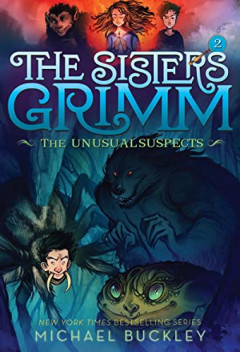Filter by

Mathematics Analysis and Approaches SL 1
- Edition
- -
- ISBN/ISSN
- 9781925489552
- Collation
- -
- Series Title
- -
- Call Number
- 510 HAE m
- Edition
- -
- ISBN/ISSN
- 9781925489552
- Collation
- -
- Series Title
- -
- Call Number
- 510 HAE m

Esio Trot - Roald Dahl
- Edition
- -
- ISBN/ISSN
- 9780141371399
- Collation
- -
- Series Title
- -
- Call Number
- F DAH e
- Edition
- -
- ISBN/ISSN
- 9780141371399
- Collation
- -
- Series Title
- -
- Call Number
- F DAH e

The Minpins
- Edition
- -
- ISBN/ISSN
- 9780142414743
- Collation
- 43 p. ; ill.
- Series Title
- -
- Call Number
- F DAH m
- Edition
- -
- ISBN/ISSN
- 9780142414743
- Collation
- 43 p. ; ill.
- Series Title
- -
- Call Number
- F DAH m

Fantastic Mr.Fox
Everytime Mr. Fox steals a chicken from the farm, Farmers Boggis, Bunce and Bean grow wild with rage. They're the nastiest crooks in the valley and they've planned to dig him out of his hole once and for all. But it never occurs to them that Mr. Fox has a fantastic plan of his own.
- Edition
- -
- ISBN/ISSN
- 9780142414552
- Collation
- 81p; bw; ill; pbk
- Series Title
- -
- Call Number
- F DAH f

A Medal For Leroy
- Edition
- -
- ISBN/ISSN
- 9781250039804
- Collation
- 130 p.
- Series Title
- -
- Call Number
- F MOR m
- Edition
- -
- ISBN/ISSN
- 9781250039804
- Collation
- 130 p.
- Series Title
- -
- Call Number
- F MOR m

Charlie and the chocolate factory
- Edition
- -
- ISBN/ISSN
- 0141311304
- Collation
- 189/Ada/paperback
- Series Title
- -
- Call Number
- -
- Edition
- -
- ISBN/ISSN
- 0141311304
- Collation
- 189/Ada/paperback
- Series Title
- -
- Call Number
- -

Whizzpopping joke book
- Edition
- -
- ISBN/ISSN
- 9780141368238
- Collation
- 119/Ada/paperback
- Series Title
- -
- Call Number
- -
- Edition
- -
- ISBN/ISSN
- 9780141368238
- Collation
- 119/Ada/paperback
- Series Title
- -
- Call Number
- -

THE SISTERS GRIMM (2); The Unusual Suspect
Orphaned sisters Sabrina and Daphne are sent to live with their recently discovered grandmother, Relda Grimm. The girls learn that they are descendants of the Brothers Grimm, whose famous book of fairy tales is actually a history of the brothers' crime-solving efforts. To celebrate the 10th anniversary of its publication, we are repackaging this beloved, groundbreaking series with new covers in…
- Edition
- -
- ISBN/ISSN
- 9781419720086
- Collation
- -
- Series Title
- -
- Call Number
- 813.6 BUC t

THE SISTERS GRIMM (7); The Everafter War
After two years trapped in enchanted sleep, Daphne and Sabrina's parents are finally free. Unfortunately, they've awoken to chaos in Ferryport Landing. Prince Charming and his band of rebels are in hiding, plotting war against the Master and his henchmen. At first, Sabrina is thrilled to have her family back. But after calling the shots for so long, she has forgotten how different--and challeng…
- Edition
- -
- ISBN/ISSN
- 9781419720116
- Collation
- -
- Series Title
- -
- Call Number
- 813.6 BUC t

 Computer Science, Information & General Works
Computer Science, Information & General Works  Philosophy & Psychology
Philosophy & Psychology  Religion
Religion  Social Sciences
Social Sciences  Language
Language  Pure Science
Pure Science  Applied Sciences
Applied Sciences  Art & Recreation
Art & Recreation  Literature
Literature  History & Geography
History & Geography